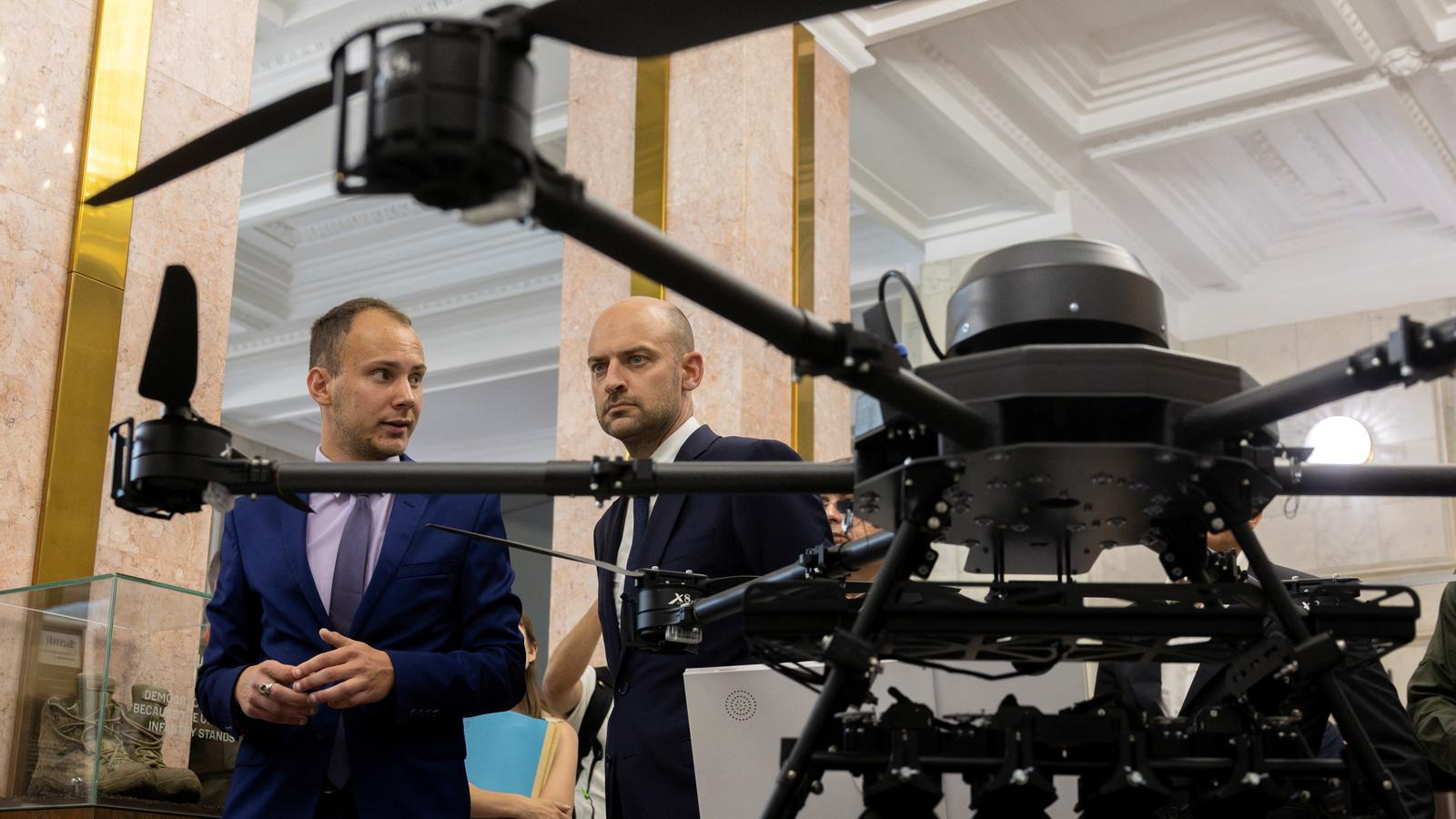Zelensky intensifies drone attacks against Moscow
The devices do not impact large cities, but they affect the daily lives of Russians.


MoscowVolodymyr Zelensky has intensified drone strikes against the Moscow region after speaking by phone with Donald Trump on July 4. In that conversation, according to theFinancial Times, The US president asked him if he had the capacity to "hit" Moscow and St. Petersburg, and the Ukrainian leader replied "absolutely." Unmanned aerial vehicles never actually hit major Russian cities, but they cause increasing headaches for their inhabitants, who, for a few hours, feel the war a little closer.
Trump denied that he had wanted to encourage Zelensky to attack Moscow. In fact, he later explicitly asked him not to make the Russian capital a target and stated that he was not considering supplying Kiev with long-range missiles. However, the pace and number of drone launches over the Moscow region have multiplied since that conversation. In the two weeks prior to the call, Ukraine had sent only ten drones. In contrast, between July 4 and 18, it deployed 72, seven times as many; and since Saturday alone, it has launched a very similar number, 64, in one of the largest attacks on the capital since the start of the war.
Moscow's air defenses make it almost impossible for aircraft to reach city centers, and only rarely have the remains of a downed drone fallen on buildings in the financial district without causing casualties. However, the attacks do cause disruptions to the daily lives of Muscovites. For example, in recent months, airports surrounding the city have had to be frequently closed due to threats of Ukrainian bombing. Over the weekend, restrictions lasted almost 24 hours, with hundreds of flights canceled and travelers camped out in the terminals.
These inconveniences contrast with the tragic consequences of the attacks on Kiev. After a few days of relative calm, residents of the Ukrainian capital were forced to take refuge in the subway early Tuesday morning due to a combined drone and missile attack that left one dead and at least nine injured. This comes just days before Russia and Ukraine are scheduled to resume negotiations in Istanbul. According to TASS, the talks could take place on Thursday or Friday, and the Kremlin is already warning that its positions are "diametrically opposed."
Massive internet outages
In St. Petersburg, apart from the disruptions to airports, another consequence of Ukrainian drones has recently become very frequent, one that also inconveniences all citizens: internet outages. Despite the more than five million people living there, the anti-aircraft batteries are not as powerful as those in the capital, so authorities have opted to be on the safe side by disconnecting the mobile network during drone alarms.
For hours, residents are unable to browse the internet outside, stores require cash payments, package deliveries are halted, and taxi fares skyrocket. Until now, this measure was considered extreme, but recently the governor of Leningrad, the St. Petersburg region, announced that communications would always be restricted and alert messages would be sent to citizens' phones.
According to experts, this trend began on May 9, coinciding with the 80th anniversary of the Soviet victory in World War II. As Sarkis Darbinian, founder of Roskomsvoboda, an organization working for a free Russian internet, reminds ARA, the Kremlin cut off millions of people's internet access to prevent Ukrainian drones from spoiling the party. When his spokesman, Dmitry Peskov, was asked last week if he wasn't being too much of a pain with these massive blockages, he said: "Anything that has to do with ensuring the safety of citizens is justified."
Another episode that contributed to the psychosis among the leaders was the Ukrainian army's operation in which drones hidden in trucks struck Russian airfields. Those experiences served as an example for the governors. According to Darbinian, they act "out of fear and desperation," adding that, "unfortunately, blackouts are becoming a trend." July 8 marked a record: 77 of the country's more than 80 regions restricted the internet at some point under the pretext of an air threat.
Activists also warn that authorities could use this to further control citizens' access to the internet. Anastasia Zhirmont of the digital rights group Access Now finds it "very worrying" that Russians are becoming accustomed to this situation and believes it "shouldn't be the modern reality."
